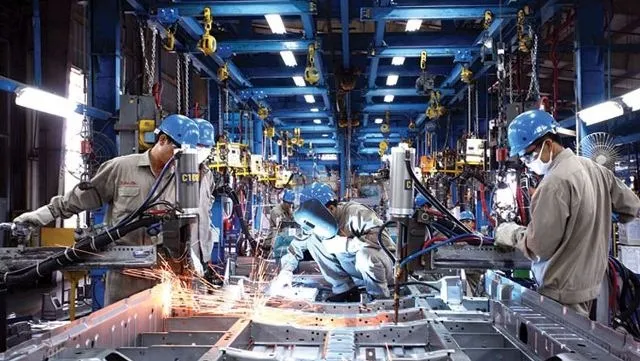Vietnam becomes attractive to manufacturers: experts

According to figures from the General Statistics Office of Vietnam, quoted on the Vietnam Governmental Portal, the country’s industrial production index (IPI) in the first six months of this year grew impressively, reaching 10.5% (compared to 7% in the same period of 2017). Of which, the manufacturing sector continued to be the bright spot leading the overall industry growth, with an increase of 12.7%.
Furthermore, the automobile industry has also shown positive signs. Domestic and FDI companies are concentrating on setting up new business plans to adapt to the zero tariff applied on automobiles starting early this year.
Suttisak Wilanan, Deputy Director of Reed Tradex (Thailand), said that Vietnam's investment environment is improving. With 16 bilateral and multilateral free trade agreements, Vietnam has one of the most favourable factors that producers can find at this time based on the value chain.
FTAs have significantly reduced tariffs, created domestic reforms, and opened up opportunities for foreign investment. Foreign companies including giants from around the world, such as Samsung, LG, Intel and Canon, have made their presence in Vietnam, mainly in the field of export-oriented manufacturing.
In addition, domestic businesses such as Vinfast and Truong Hai Auto Corporation (Thaco) have emerged as large enterprises in both the automotive manufacturing and supporting industries.
Suttisak Wilanan said that more than ever, car manufacturers need to integrate more closely with manufacturing enterprises to provide the necessary components for production expansion. In fact, a car is made from more than 30,000 components, so it is very difficult for a particular country to supply all of these components. For this reason, investors tend to set up satellite plants around their main production bases in neighbouring countries.
According to the Thai expert, Vietnam has a strategic position, located in the centre of ASEAN with many large seaports. Therefore, there are many opportunities to cooperate with Thai and Indonesian car manufacturers to set up a sustainable industrial cluster for the automotive industry.
Takimoto Koji, Chief Representative of the Japan External Trade Organisation (JETRO) in Ho Chi Minh City, said that Vietnam is becoming an attractive destination for FDI enterprises in general and Japanese enterprises in particular. At present, total investment from Japanese enterprises has increased sharply from US$2.15 billion in 2016 to more than US$9 billion in 2017.
In particular, a JETRO's recent survey showed that 70% of Japanese companies responded positively as stating that they are willing to expand their business in Vietnam in the next 1-2 years. Japanese companies are looking forward to boosting their cooperation with Vietnamese enterprises, especially those in the field of industrial production in order to increase the localisation rate.





